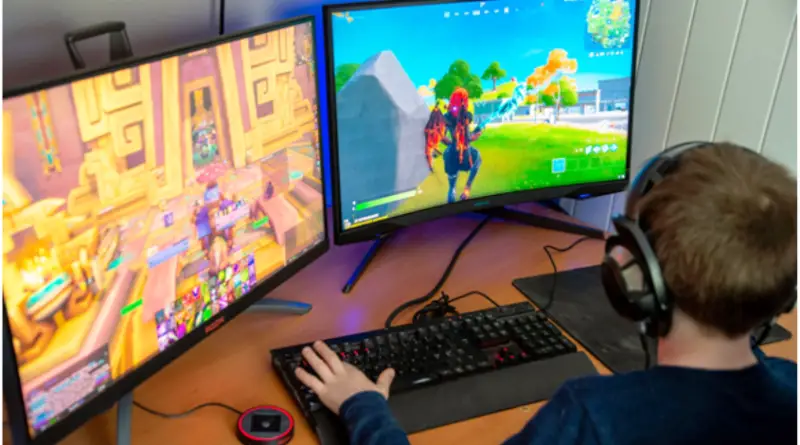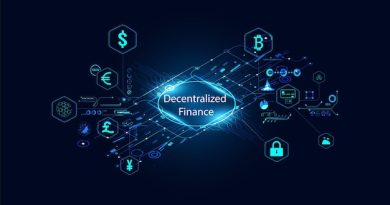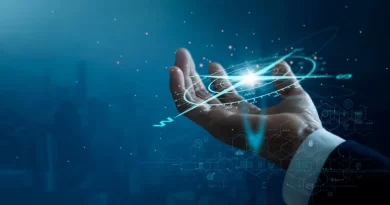How to Build a Blockchain Gaming Platform
Blockchain technologies are gradually but surely entering a number of commercial fields, including logistics, insurance, finance, and other fields.
However, blockchain games, which saw a surge in popularity in 2021, provide another interesting direction. These are blockchain development services based games that incorporate cryptographic concepts.
In comparison to a year ago, there are already 398 active blockchain games, an increase of 92%.
Let’s find out what factors must be taken into account while developing a blockchain game, and why are they so popular?
What is the Blockchain Game?
Games that employ cryptographic components and are built on the blockchain technology are known as blockchain games.
The fact that this technology enables complete user possession over an item inside a game is its most significant feature. As a result, you can easily trade stuff with other players without having to transfer your entire account for a single item. Blockchain technology for gaming creates a completely new player-driven economy where anyone can produce their own original content.
The Key Components of a Blockchain Game are as follows:
- Digital Ownership
- NFT
- Safety
- Decentralized Exchange
- The Economy Focused on Players
Why are Blockchain Games so Popular?
Let’s quickly review the benefits that blockchain technology offers the gaming sector:
Games Cannot be Stopped
Businesses fail, are acquired, or individuals in control can damage a game for the sake of profit. Throughout the history of video games, this has repeatedly occurred. Blockchain games cannot be closed by any central authority, not even the game’s developer.
Democracy and Liberty
Theoretically, players can take the original game and modify it to suit their preferences if they’re unhappy with it for some reason. As a result, blockchain-based games provide a greater degree of freedom and democracy.
Performance between Games and Blockchain
One of the best aspects of blockchain-based games is possibly this. You can use your current avatar, items, and “karma” in other (totally unrelated) games because your gameplay status and personal data are continuously updated and saved on a blockchain.
Having Access to Digital Assets
Globally, hundreds of millions of gamers spend a lot of time and money developing their gaming portfolios. The issue is that they can easily lose all of their labor due to a variety of events, such as a game ban or a company going out of business, yet they are unable to get their money back for the upgrades and premium products they purchased. In blockchain-based games, the time and effort you invest in creating your characters and digital assets stay with you forever and cannot be taken away by anybody, not even the game’s developers.
In-Built Games Economies
On the blockchain, players can trade in-game currency. For instance, if you need a particular card to build a deck for your card game, you can purchase it from a blockchain-based trading or auction market.
Advantages of Blockchain Games for Developers
Investing a sizable sum of money in creating a blockchain game is necessary. However, the outcomes of these games typically make the effort worthwhile. Here are a few of the most significant advantages of developing games on blockchain technology.
Data Encryption
Blockchain technology is used in games to safeguard the use and storage of cryptocurrency tokens. This indicates that the risk of hacking is minimal. Because all the data is kept on a decentralised blockchain, hackers cannot compromise players’ transactions.
Development Possibilities
Companies that invest in the cryptocurrency gaming business have access to several growth prospects as it continues to grow. They have a better chance of gaining market share if they use cutting-edge blockchain technology.
User-Interface Experience
Blockchain-based games offer the highest level of security and transparency, guaranteeing a smooth user experience.
Assets Distribution is Transparent
The complete transparency of asset distribution will appeal to players who want to control their possessions and ensure that nobody can remove them.
How to Create a Blockchain Game
The developer should be informed of the key steps in the process before creating a blockchain game. Which are:
1) The Potential and Restrictions of Blockchain
Priority one should be given to analyzing and comprehending blockchain architecture. It’s also essential to be knowledgeable about the security, uses, integrations, and limitations of the blockchain.
Blockchain consensus, hashing algorithms, and distributed ledger technology are all concepts that blockchain developers need to be aware of. Understanding several blockchains and how they work is essential.
2) Data Framework
The blockchain network should be structured by the developer in accordance with demand and specifications. It’s crucial to comprehend the various kinds of perfect databases and data architectures for the target network.
3) Smart Contract
Implementing the correct sort of contract requires knowledge of the various smart contract types and how to construct them.
4) Blockchain Decentralization Application
On many blockchain systems, dApps can be created using various protocols and techniques. Decentralization and its application to blockchain games should be completely understood by a blockchain game creator.
5) Cryptography
The foundations of blockchain operations are cryptography and the digital ledger. To determine which algorithms and cryptographic techniques are most effective for creating different kinds of blockchain networks, a developer must be well-versed in both.
6) Cryptonomics
A blockchain developer must be familiar with the economics of cryptocurrencies and how they are implemented on the blockchain. It’s also essential to understand the variables that influence cryptonomics and related monetary policies.
Best Blockchain Platforms for Game Development
Ethereum
a public blockchain network that is spread across With Ethereum, you can create software and write code to manage money. The decentralised application’s programming code is intended to run on the Ethereum blockchain.
Tron
Decentralized application development and deployment are accelerated and made simpler by Tron. TRX is the cryptocurrency that Tron retains. Tron creates an ecosystem where users can gain access to digital assets by sharing content.
EOS
The scalability and quick transaction speeds of EOS are well recognised. EOS makes it possible to create a blockchain application platform that scales to thousands of transactions per second safely and easily.
Hyperledger Fabric
On a modular architecture, decentralised applications are built using the hyperledger fabric. Consensus and membership services are plug-and-play thanks to the blockchain.
How to Create Ethereum Blockchain Games
Solidity, Serpent, or LLL are the best solutions for beginners when designing blockchain games on Ethereum, according to experts. Among game developers, Solidity is arguably the most popular language.
On Ethereum, you can make games in two different ways:
● Utilizing the ERC-721 Token Protocol
Since each token in this system is distinct or non-transferable, it is known as a non-fungible token standard. According to the standard, blockchain developers are able to design virtual goods that can travel at various speeds and have a variety of strengths and weaknesses.
● With Smart Contracts
For creating games like roulette or blackjack, this technique works well. In order to write the programmes that determine whether a player wins or loses, a developer will need to be well-versed in both mathematics and cryptography.
Tools to Create your Game on the Ethereum Blockchain
Truffle Framework
Through JavaScript, Truffle-an Ethereum development ecosystem enables testing, deployment, and interactions between all of your potential blockchain contracts.
Solidity Browser
It enables the deployment of contracts from websites to the Ropsten test network and the subsequent use of the public services of those contracts in a browser.
Mocha
The framework enables the creation of JavaScript tests with various levels of mocking/stubbing.
Ganache
With just one click, you can create your own private blockchain using the Ethereum developers’ blockchain emulator Ganache. The Truffle Framework and Solidity Browser are included.
Wrapping Up
Games have never been more immersive thanks to blockchain, which has revolutionized the industry. Over the past few years, blockchain technologies have become increasingly complicated. They’re expanding and changing. Gamers and other significant players in the gaming business have shown a great deal of interest in the capability for players to make money outside of the game in addition to spending it on in-game goods and services.
The idea of blockchain games can potentially be expanded to incorporate a metaverse, or virtual environment, around your game. Players can collaborate, establish a government, and even design their own currencies to facilitate value exchange in the metaverse. In a virtual gaming environment, you can create a DAO or mint NFTs.




